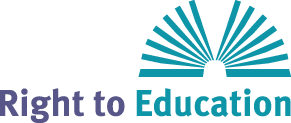For the past 18 months, a number of international, national and local organisations have been working together to research and assess the effects of the growth of private education from a human rights perspective in 8 countries. This work, led by the Global Initiative on Economic Social and Cultural Rights (GI-ESCR) in Partnership with the Privatisation in Education Research Initiative (PERI) and the Right to Education Initiative (RTE), has produced an effective methodology that civil society can use to tackle privatisation in their countries.
This work has been conducted in Morocco, Ghana, Uganda, Kenya, Brazil, Chile and Nepal. In the UK, organisations have examined the impact of development aid to support to private education in developing countries.
This strategy has been very successful in producing statements and recommendations from key UN human rights bodies. The work has also contributed to reports by the Special Rapporteur on the right to education to the UN General Assembly and the Human Rights Council on the impact of private actors on the right to education. Advocacy at the international level has fuelled national advocacy and dialogue with governments, private actors and other stakeholders on this issue.
There is a unique opportunity for civil society to tackle complex issues of privatisation in education by using this framework. The methodology can easily be replicated by your coalition, even if you have no experience using human rights mechanisms. This 3-part series explains this work in more detail and how your coalition can get involved. The documents are designed as an introduction.
Part 2 on How to use Human Rights Mechanisms is available, here.
Part 3 Case-Studies on Parallel Reporting to Tackle Privatisiation in Education is available, here.
For the past 18 months, a number of international, national and local organisations have been working together to research and assess the effects of the growth of private education from a human rights perspective in 8 countries. This work, led by the Global Initiative on Economic Social and Cultural Rights (GI-ESCR) in Partnership with the Privatisation in Education Research Initiative (PERI) and the Right to Education Initiative (RTE), has produced an effective methodology that civil society can use to tackle privatisation in their countries.
This work has been conducted in Morocco, Ghana, Uganda, Kenya, Brazil, Chile and Nepal. In the UK, organisations have examined the impact of development aid to support to private education in developing countries.
This strategy has been very successful in producing statements and recommendations from key UN human rights bodies. The work has also contributed to reports by the Special Rapporteur on the right to education to the UN General Assembly and the Human Rights Council on the impact of private actors on the right to education. Advocacy at the international level has fuelled national advocacy and dialogue with governments, private actors and other stakeholders on this issue.
There is a unique opportunity for civil society to tackle complex issues of privatisation in education by using this framework. The methodology can easily be replicated by your coalition, even if you have no experience using human rights mechanisms. This 3-part series explains this work in more detail and how your coalition can get involved. The documents are designed as an introduction.
Part 1 on Private Actors in Education & Human Rights: A Practical Methodology to Tackle the Negative Effects of Privatisation in Education on the Right to Education is available, here.
Part 2 on How to Use Human Rights Mechanisms is available, here.
On 7 July 2014, the UN Committee on the Elimination of Discrimination against Women (CEDAW) held a General Discussion on the Right to Education for Girls and Women, the aim of which is to commence the Committee’s process of elaborating a “General Recommendation on girls’/women’s right to education.”
Thirteen organizations from around the world, included the Right to Education Initiative, presented a written submission to CEDAW on ‘Privatization and its Impact on the Right to Education of Women and Girls,’ highlighting evidence from a range of countries showing that more boys are enrolled in schools than girls, a problem that is exacerbated by the increasing privatization of education. Privatization in many cases deepens gender discrimination in education because already marginalized and vulnerable groups, including women and girls, are more disadvantaged by private provision and are the least able to pay for services.
Treaty bodies are committees of independent experts created under a particular UN treaty. They are mandated to monitor how the states which have ratified the treaty in question comply with their obligations to implement the human rights guaranteed by the treaty, including the right to education. They periodically examine state reports and issue concluding observations on states’ compliance with the treaty, including recommendations.
The UN Committee on Economic, Social and Cultural Rights (CESCR), the UN Committee on the Rights of the Child (CRC), the UN Committee on the Elimination of all forms of Discrimination Against Women (CEDAW), the UN Committee on the Rights of Persons with Disabilities (CRPD) and the UN Committee on Civil and Political Rights (CCPR) have covered issues related to higher education in their concluding observations. This document compiles their concerns and recommendations for the period 2016-2021. It is organised by UN treaty Bodies with states listed in alphabetical order.
This documented was submitted to the UN Special Rapporteur on the right to education in February 2023, in response to a call for contributions for a report she is developing for the UN Human Rights Council.
This brief was submitted to the UN Committee on Economic, Social and Cultural Rights prior to the 7th Review of the United Kingdom, responding to the pre-sessional Working Group submission. It was submitted in January 2023 and focuses on UK international development cooperation in the area of education. Another report was submitted in 2024 with updates and recommendations.
